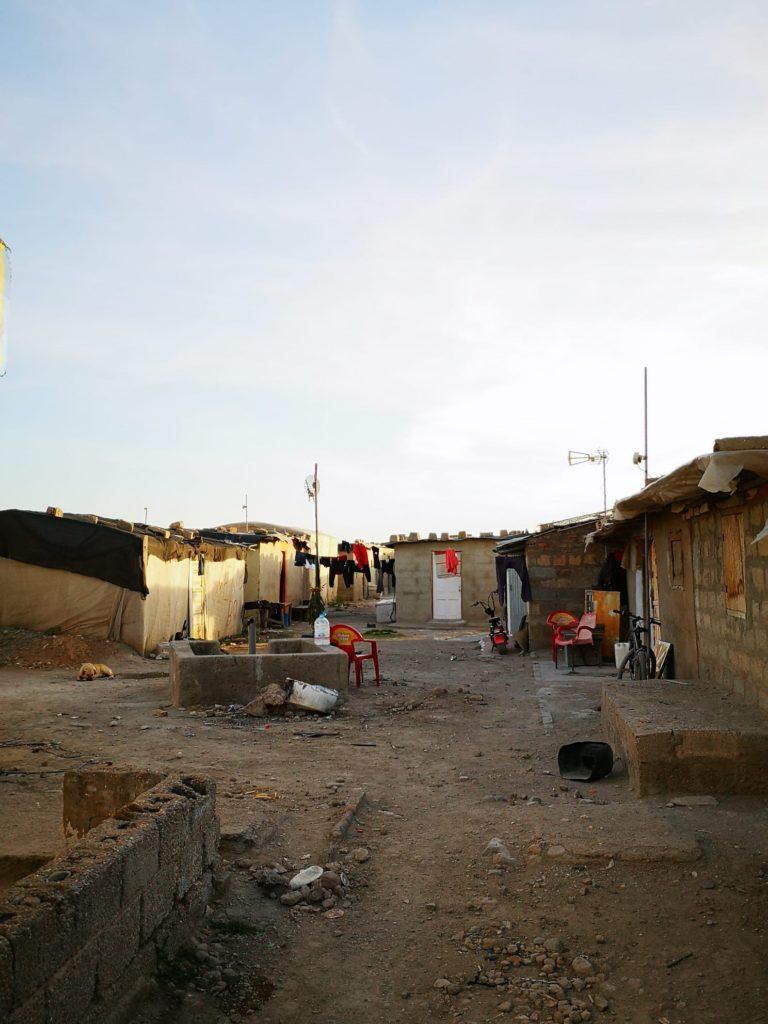
Hassan (pseudonym) left Guinea in 2016, after saving the money necessary to make his way to Europe. His whole family contributed. He crossed the Sahara Desert on foot, but was arrested by the Algerian police at the Moroccan border and imprisoned. Again, his family contributed to pay for his release. From Algeria he crossed to Morocco, where after spending several weeks in the woods on the outskirts of Nador, he managed to jump the fence, across from Morocco to the Spanish colonial city of Melilla.
In Melilla, Hassan spent two months at the ‘CETI’, a facility created by the Spanish government to host people who enter the country through irregular ways. As different NGOs have repeatedly denounced, these centers are characterized by overcrowding, poor sanitary conditions and lack of management transparency. Released after 3 months, he was then transferred to Almeria, where he ended up living in a slum near El Ejido. This area, known as ‘Europe’s vegetable garden’, is renowned for being a major hub of greenhouse agriculture and sadly infamous for its demeaning working conditions. Hassan works occasionally there harvesting vegetables, without a contract, and making on average 5 euros per hour.
In the slum, Hassan shares a shack with another person from Mali. Living and sanitary conditions are extremely precarious: there is no running water, no sewage system and garbage piles up everywhere. Throughout the time he has been living there, he has faced different health issues: a sprained ankle when he fell from a construction fence doing greenhouse maintenance work, various infections and, was recently diagnosed with asthma. As an undocumented migrant, he does not have access to the medical card that allows citizens seeking care in public facilities, so he depends on NGOs to help pay for his medical treatments or risks not getting treated.
Hassan’s story is not unique. More than 400.000 people are estimated to live in Spain as undocumented migrants. While there exists a law in Spain to allow ‘Foreigners who are in Spain have the right to health care under the same conditions as national citizens’, the reality is far from this universal principle. Access to emergency care is generally available without any requirements; but, primary or specialized care is accessible only to those with a registration certificate older than 3 months. Like Hassan, most undocumented migrants do not have access to such certificates, as the law itself prevents them from having any kind of valid personal document until they can prove that they have been living in the country for at least 3 years. In addition, access to care for migrants is also associated with fragmentation and heterogeneity among the different Spanish regions, some of which have implemented complex protocols to get a medical card that eventually creates more barriers to health care.
Beyond the paperless, migrants with valid residence permits are also exposed to the ambiguity and precariousness that characterizes the current health system. This situation is illustrated by recent cases in which people were charged after receiving emergency care, or even being denied chronic medical assistance when they have a valid residence permit (as the case of a 2 year old who could not access treatment after receiving a transplant). In 2022, more than 12.000 cases of discrimination when seeking care have been documented in Spain by Medicos del Mundo, a NGO that works on the right to healthcare for vulnerable populations.
Several questions arise: how does a modern democracy explain policies that deliberately push more than 400.000 people living in its territory out of the system? Is healthcare turning into a privilege even in high income settings? How can we still accept that human lives are more or less valuable depending on where in the world a person is born?
In Spain, new emergent political parties and different human rights organizations are trying to do their part to revert this situation. As an example, ‘Esenciales’ is a popular initiative that aims to grant a residence permit to all foreigners living and working in Spain, regardless of their country of origin. More than 600.000 citizens have signed the petition, compelling the Spanish Parliament to debate about passing itbefore the end of June (2023).
No one is illegal. At least not when your only crime is pursuing a better life.

Atochares slum (photo by Daniel Izuzquiza SJ)